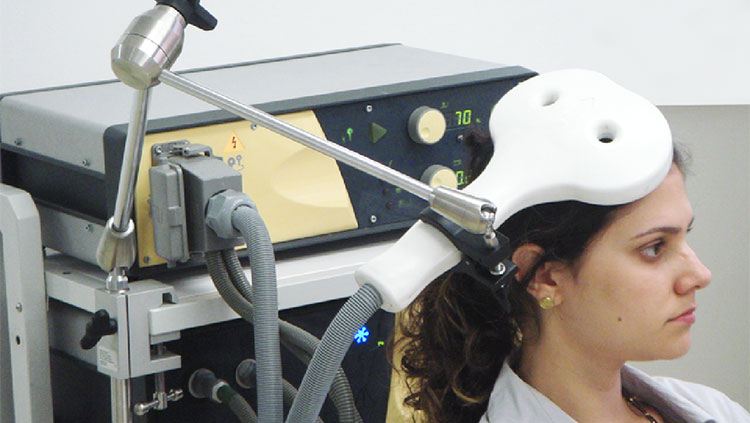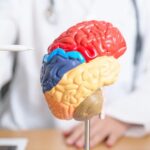
TMS Therapy Explained: How Magnetic Stimulation Works On The Brain
Welcome to a world where magnetic waves hold the power to transform lives. TMS therapy, short for Transcranial Magnetic Stimulation, is revolutionizing the treatment of mental health disorders. This article will delve into how this groundbreaking therapy works on the brain.
TMS therapy utilizes powerful magnetic fields to stimulate specific areas of the brain. By targeting key regions responsible for mood regulation, TMS can effectively alleviate symptoms of depression, anxiety, and even certain neurological conditions.
What Is TMS Therapy?
TMS therapy stands for Transcranial Magnetic Stimulation. It is a non-invasive procedure that uses magnetic fields to stimulate specific brain areas. Unlike other treatments for mental health disorders, such as medications or electroconvulsive therapy, TMS therapy does not require any anesthesia or sedation. It is a safe and painless procedure performed in an outpatient setting. The FDA has approved TMS therapy for the treatment of depression, and it is also being studied for its effectiveness in treating other mental health conditions.
How Does TMS Therapy Work?
TMS therapy uses a specialized device that generates magnetic fields. These magnetic fields are directed towards specific brain regions involved in mood regulation. The magnetic fields induce electrical currents in the targeted areas of brain stimulation therapy. By nurturing these areas, TMS therapy aims to normalize the brain’s activity and alleviate symptoms of depression, anxiety, and other mental health disorders.
The Science Behind Magnetic Stimulation
The science behind magnetic stimulation is based on the principle of electromagnetic induction. When a magnetic field changes in strength or direction, it induces an electric current in nearby conductive materials, such as the human brain. In the case of TMS therapy, the magnetic fields generated by the device cause electrical currents to flow in specific areas of the brain, leading to the desired therapeutic effects. TMS therapy’s precise mechanism of action is still being studied, but it is believed to involve the modulation of neuronal activity and the release of neurotransmitters.
TMS Therapy For Depression And Anxiety
TMS therapy is an effective treatment option for individuals with depression and anxiety who have not responded well to traditional treatments, such as medications or therapy. Clinical studies have demonstrated that TMS therapy can significantly reduce symptoms of depression and improve overall mood and well-being. The benefits of TMS therapy can often be observed within a few weeks of starting treatment, and the effects can be long-lasting for many individuals. Consulting a depression psychiatrist is crucial for those considering TMS therapy, as they can provide a comprehensive evaluation, personalized treatment plan, and ongoing support to ensure the best outcomes.
Benefits Of TMS Therapy
One of the critical benefits of TMS therapy is its non-invasiveness. Unlike electroconvulsive therapy, which requires the administration of anesthesia and can cause memory loss and other side effects, TMS therapy is a painless and comfortable procedure. Patients can remain awake and alert during the treatment, and there is no need for any recovery time afterward. TMS therapy also has minimal side effects, the most common being mild scalp discomfort or headache, which usually resolves within a few hours.
TMS Therapy Procedure And Sessions
A typical TMS therapy session lasts between 20-40 minutes, and the treatment is usually administered five days a week for several weeks. During the session, the patient sits comfortably in a chair, and a coil is placed on their scalp. The coil delivers brief magnetic pulses to the targeted areas of the brain. The number of sessions required can vary depending on the individual and the severity of their condition. Some individuals may experience improvement after just a few sessions, while others may need more sessions to achieve the desired results.
TMS Therapy Vs. Other Treatment Options
Compared to other treatment options for depression and anxiety, such as medications or therapy, TMS therapy offers several advantages. Medications can have side effects and may not be effective for everyone, while therapy often requires time and ongoing sessions to show results. TMS therapy, in contrast, is a targeted, non-invasive treatment that directly stimulates brain areas responsible for mood regulation, making it a viable alternative for individuals who have not responded well to other therapies or prefer a drug-free approach.
Additionally, ketamine treatment at Level One Urgent Care provides rapid relief for severe depression and anxiety, often showing significant improvements within hours to days. Combining TMS therapy with ketamine treatment can offer a comprehensive approach to managing mental health conditions, providing effective, alternative options for those seeking prompt and practical solutions.
TMS Therapy Success Stories
Many individuals undergoing TMS therapy have reported significant improvements in their symptoms and overall quality of life. These success stories highlight the transformative potential of TMS therapy for individuals with depression, anxiety, and other mental health disorders. For some, TMS therapy has provided relief when other treatments have failed. It has allowed them to regain control of their lives and experience renewed hope and well-being.
Finding A TMS Therapy Provider
If you or someone you know is interested in exploring TMS therapy as a treatment option, it is essential to find a reputable provider. Look for a provider with experience administering TMS therapy and a team of qualified healthcare professionals. Ask about their success rates, the number of sessions required, and any potential side effects. It is also recommended to consult with a mental health professional who can assess if TMS therapy is suitable for your specific needs and guide you through the treatment process.
Conclusion
TMS therapy is a groundbreaking treatment that utilizes magnetic stimulation to alleviate symptoms of depression, anxiety, and other mental health disorders. With its non-invasive nature and minimal side effects, TMS therapy offers a promising alternative for individuals who have not responded well to traditional treatments. TMS therapy can restore balance and improve mood regulation by targeting specific brain areas. If you or someone you know is struggling with a mental health condition, consider exploring the transformative potential of TMS therapy and discover how magnetic stimulation can open up new horizons for mental health treatment.
















